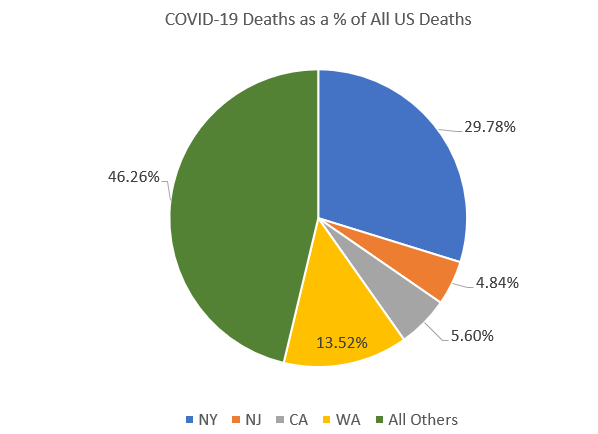In a January 2020 Forbes Magazine article titled “Why Doing Good Is Good For Business” clearly left out critical information: who is the good or bad entrepreneur? According to the author, good entrepreneurs are doing good if their primary objective is not to make a profit. And bad entrepreneurs are doing bad if their primary objective is to make a profit. Basically, the author suggested that, to be good, a business should not pursue profit and, along with it, customer satisfaction. Ignoring the profit motive is deemed more important than the entrepreneurial reward of profit that comes from providing a service or product to customers who demand value. The bad entrepreneur is only concerned with making money, surviving in the market, and serving consumers. The bad
Topics:
Raushan Gross considers the following as important: 6b) Mises.org, Featured, newsletter
This could be interesting, too:
Nachrichten Ticker - www.finanzen.ch writes Die Performance der Kryptowährungen in KW 9: Das hat sich bei Bitcoin, Ether & Co. getan
Nachrichten Ticker - www.finanzen.ch writes Wer verbirgt sich hinter der Ethereum-Technologie?
Martin Hartmann writes Eine Analyse nach den Lehren von Milton Friedman
Marc Chandler writes March 2025 Monthly
 In a January 2020 Forbes Magazine article titled “Why Doing Good Is Good For Business” clearly left out critical information: who is the good or bad entrepreneur? According to the author, good entrepreneurs are doing good if their primary objective is not to make a profit. And bad entrepreneurs are doing bad if their primary objective is to make a profit.
In a January 2020 Forbes Magazine article titled “Why Doing Good Is Good For Business” clearly left out critical information: who is the good or bad entrepreneur? According to the author, good entrepreneurs are doing good if their primary objective is not to make a profit. And bad entrepreneurs are doing bad if their primary objective is to make a profit.
Basically, the author suggested that, to be good, a business should not pursue profit and, along with it, customer satisfaction. Ignoring the profit motive is deemed more important than the entrepreneurial reward of profit that comes from providing a service or product to customers who demand value. The bad entrepreneur is only concerned with making money, surviving in the market, and serving consumers. The bad entrepreneur pursues charitable deeds but not at the cost of what consumers demand. You see, being the good entrepreneur only helps a few concentrated groups but ignores the diffuse effects of many consumers, profit rewards, and potential failure. What is the good entrepreneur to do?
Let’s be honest. If the entrepreneur is not primarily motivated by profit, what happens if the business fails or can no longer service its customers due to profits invested in nonmarket activities that do not serve them? Unfortunately, there is a public perception that does not allow entrepreneurs to pursue a profit motive only, because others must choose for them—they call them good entrepreneurs. They call them good if they subordinate the profit motive to lofty, nonmarket, eleemosynary endeavors outside the scope of producing consumer value.
Professor Walter Williams wisely advised: “Profit guides resources to their highest valued uses as determined by people’s wants and desires.”1 Should entrepreneurs disregard the profit motive, making it secondary, and replace it with nonmarket motives? What would the effect of nonmarket motives be on the entrepreneur and the customer? When Coca-Cola changed its formula, said Williams, it was because of customer preference. Consumer preference was a warning sign to the potential loss of profit which brought back the original formula! Actually, good entrepreneurs focus on nonmarket motives—endeavors that are outside their division of labor in the first place. Ludwig von Mises once asked, “What is the good entrepreneur to do?”2
Shouldn’t the primary goal of entrepreneurs be to remain profitable so that, at a minimum, they are able to run their businesses and continue production, which then serves customers who choose to buy products and services? Don’t entrepreneurs deserve to earn a reward for taking risks and putting their livelihoods in jeopardy to procure materials and goods to bring to the market? To eliminate the profit motive is to ask entrepreneurs to provide their vital service to consumers perhaps at a higher cost than they would otherwise. Profit is not only the reward given by satisfied customers, but is also a market signal of what to do more of and what to do less of. You see, the good entrepreneur, not having a profit motive, primarily focuses on motives that do not serve customer needs.
Market Customers Are Ignored
For example, your local pizzeria owners generally do not know you personally, but they know that you want hot delicious pizza. That’s their motive. Fortunately for pizzeria owners, there’s a reward for preparing that pizza for you. But if your local pizzeria owners do not make a profit, they will no longer exist in your community to serve pizza. End of story.
Therefore, we must ask: are good entrepreneurs, motivated not by profit but by nonmarket issues, likely to be successful and stay in business? Why is there an expectation that entrepreneurs run a business without a profit motive? They can’t. The good entrepreneurs are nonmarket oriented and put profits into nonmarket endeavors aside from producing value for their customer; these nonmarket motives are placed before the profitability of the business and a value-added process for customers.
Having a motive other than profit poses a critical problem. Mises asked, “How can a conscientious entrepreneur persuade a banker or a capitalist to lend him money if he himself cannot see any prospect of a profitable return on his investment?”3 The good entrepreneur, in fact, must ignore customers and forgo profit for nonmarket activity, in which the entrepreneur has a great chance of failing due to financial instability and loss of customers.
What Is the Good Entrepreneur to Do?
When the profit motive is taken off the table as a primary objective, there are several consequences. There ceases to be a way to reward the entrepreneur over and above the costs of doing business. Someone must bear the consequence if the business isn’t profitable and struggles financially. Customers leave.
Good or bad entrepreneurs, if they wish, can be motivated by other things than profit. But the question remains: what cost are they willing to pay to keep the business from failing? Surely, there are other motives that can come into play, but does the entrepreneur who decides not to do what’s in vogue become a bad entrepreneur? Survival of the business comes first; serving consumers comes next. If good entrepreneurs fail, who subsidizes them? If bad entrepreneurs survive and continue to provide value, are they not doing what they are rewarded to do? Bad entrepreneurs can choose what they want to do with their profits, as long as it does not interfere with market exchanges and customer satisfaction.
There is nothing better than to support one’s community and do good deeds for others. However, we must examine a simple fact. If an entrepreneur is not driven by profit first, then a profit-driven entrepreneur will come along, do things better at a better price, and obtain a greater market share. This is a fact of the market process. The problem comes when the good entrepreneur is asked to be guided by nonmarket activities, as Mises stated. He said that entrepreneurs are viewed as “hard and selfish” if they are guided by a market position instead of a nonmarket position and asked, “What is the good entrepreneur supposed to do?”4
Market Consequences
How soon we forget that, as Mises noted, it is “consumers and not the entrepreneurs that determine the direction and scope of production”? In order to serve customers, entrepreneurs must maintain a profitable operation—this is what a good entrepreneur does. If the entrepreneur chooses to disregard the profit motive, customers will not be served. If they are served, at what cost?
Some expect to interfere with an entrepreneur’s business endeavor to pressure them to provide nonmarket outcomes. Basically, they expect the entrepreneur to run a business without a profit. But the same people demand products and services from the entrepreneur. The nonmarket profit motive does not work.
The entrepreneur operates in a market economy, where consumer signals regulate the production or service offerings of businesses. Is it feasible to ask that entrepreneurs use their privately held resources for nonmarket endeavors notwithstanding the profit motive? Should I ask my favorite pizzeria owner to not be motivated by profit, yet demand he keep making those hot, yummy pizzas? Whatever motive the entrepreneur decides to assume, there surely will be a market consequence.
Nonmarket pressure groups demand that good entrepreneurs only be motivated by what they think is important or the latest nonmarket trend. The fact is, as individuals, entrepreneurs can decide what motivates them and pursue the means to that end. The main concern should not be whether the entrepreneur is primarily motivated by profit or not, but the diffuse effects on customers. Further examination is needed as to the costs in the market.
How do motives that are not based on profits bring results in a market economy? Does a secondary motivation other than profit negatively affect the survival of the good entrepreneur and/or consumers? If so, then we can assume that “the wishes of customers can be safely ignored because there’s no bottom-line discipline of profits.”5
Are you the good entrepreneur?
- 1. Walter E. Williams, More Liberty Means Less Government: Our Founders Knew This Well (Stanford, CA: Hoover Institution Press, 1999).
- 2. Ludwig von Mises, Interventionism: An Economic Analysis, ed. Bettina Bien Greaves (Irving-on-Hudson, NY: Foundation for Economic Education, 1940).
- 3. Mises, Interventionism.
- 4. Mises, Interventionism.
- 5. Williams, More Liberty Means Less Government.
Tags: Featured,newsletter









